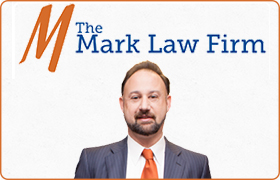 North Brunswick Felony Lawyers, New Jersey
North Brunswick Felony Lawyers, New Jersey
Sponsored Law Firm
-
 x
x

Click For More Info:
-
Mark Law Firm
675 Morris Avenue, Suite 102 Springfield, New Jersey 07081 » view mapCar Accident Call Now For A Free Initial Consultation
Life changes drastically in the aftermath of a serious accident or injury. Emotional and financial ramifications can also be extensive.
800-736-9780  Jamison Mark Basking Ridge, NJ
Jamison Mark Basking Ridge, NJAttorney At Law - NJ, 2000
Widener University SOL, J.D. - 1999
 Overview
OverviewMark Law Firm is a full-service firm representing the interests of its clients.
 Testimonials
Testimonials"He is certainly one to go to the limit for his clients and his friends."
Sponsored Lawyers
1-6 of 6 matches
Criminal, DUI-DWI, Felony, White Collar Crime, Misdemeanor
Former Los Angeles & Compton gang prosecutor, federal prosecutor, and state prosecutor … Now providing an aggressive criminal defense for you. As a criminal defense lawyer in New Jersey, Douglas Herring handles all Superior Court and Municipal Court charges. Mr. Herring is well known for the aggressive representation of clients. Mr. Herring handles Homicides, White Collar cases, Drug Crimes, Theft Crimes, Juvenile Crimes, Domestic Violence, and Expungements throughout New Jersey. Mr. Herring has experience in Municipal Courts, including DUI cases. DOUG’S EXPERIENCE AT A GLANCE: • 15+ years experience handing all Felonies & Misdemeanors • Former Assistant Prosecutor in Middlesex County • Former Assistant United States Attorney in the District of New Jersey • Former Deputy District Attorney in Los Angeles. Assigned to the Hardcore Gang Unit in Compton. • Conducted over 100 jury trials. • Taught Prosecutors the use of computerized presentations for trials. CONDUCTED OVER 100 JURY TRIALS Douglas Herring has conducted over 100 jury trials and numerous judge trials. Mr. Herring is a 1991 graduate of Washington University in St. Louis and a 1996 graduate of Loyola Law School in Los Angeles. After working as a defense attorney, Mr. Herring began as a Deputy District Attorney in Los Angeles. Eventually, Mr. Herring was assigned the elite Hardcore Gang Unit in the Compton Courthouse and the Norwalk Courthouse. Mr. Herring relocated to New Jersey and worked as an Assistant United States Attorney in Newark and Trenton. He moved to state court crimes and began as an Assistant Prosecutor in Middlesex County. Eventually, Mr. Herring was the busiest prosecutor on a trial team where he handled all aspect of the cases from the original charging through trial before a jury. NEW JERSEY CRIMINAL DEFENSE LAWYER DOUGLAS HERRING Drawing on his experiences, contacts and relationships with prosecutors, law enforcement and judges within the criminal justice system, Mr. Herring opened the premier New Jersey criminal defense firm. He knows the inner workings of investigations conducted by law enforcement and how prosecutors assemble their cases against a suspect. Mr. Herring defends clients accused of criminal charges in New Jersey. Mr. Herring is known for "working up" his cases by conducting a thorough and independent investigation separate and apart from law enforcement. He leaves no stone unturned when defending his clients whether they are fighting a Municipal Court DUI, complex white collar fraud case, or a high profile murder case. Attorney Herring understands that his client's interests and he will work hard to keep them out of jail and free of a criminal record. Unlike many other attorneys, Mr. Herring focuses exclusively on the practice of criminal law. This exclusive focus allows him to understand your situation and the law that relates to your case. This experience will make an immeasurable difference in your case. “CONNECT WITH YOUR DEFENSE” Mr. Herring founded this law practice to focus on superior client service and using technology to improve the connection clients have with their case. The police reports in your case will be scanned and available to you immediately. Your emails and phone calls are important and Mr. Herring will return your calls as quickly as possible
(more)






